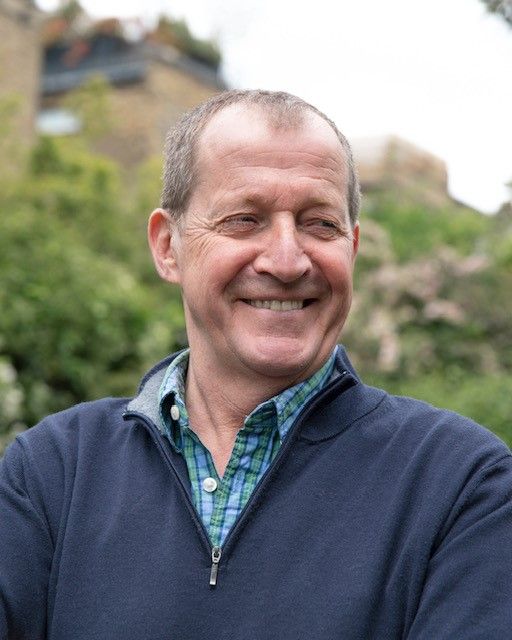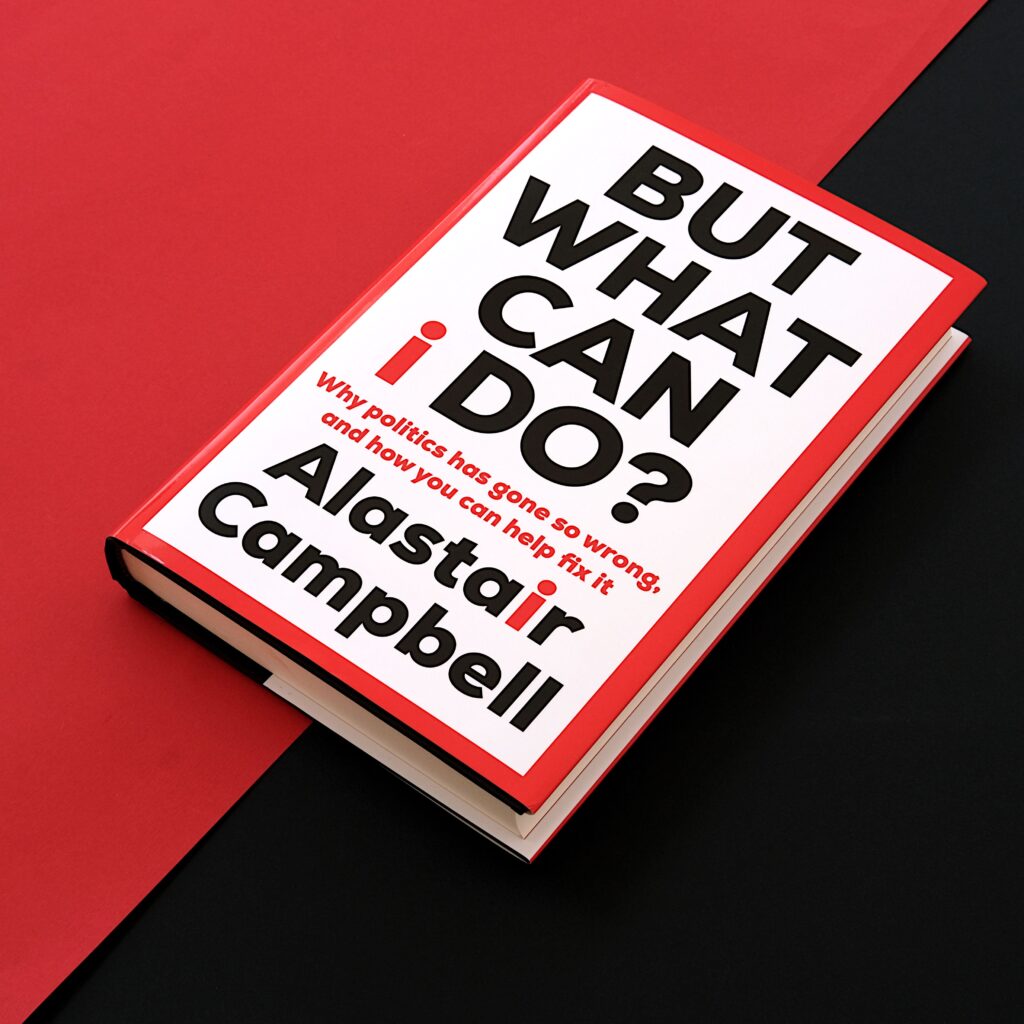‘I have worked in politics and media all my adult life. I have never been more in despair about both.‘
That is the opening line of Alastair Campbell’s new book, ‘But What Can I Do? Why Politics Has Gone So Wrong, and How You Can Help Fix It’. The ex-Labour communications chief is a prolific writer and has turned his attention and considerable political experience to the question in the title of his book. It is the question Campbell says he gets asked more than any other; its answer required a book. The Speaker spoke to Campbell about his new book, and about why young people should get involved in politics.
Campbell splits his book into two halves: the first focuses on what has gone wrong in our politics; the second on what can be done to fix it. And for Alastair Campbell, that answer lies largely with young people.
‘Populism, polarisation and post-truth politics,’ largely define modern politics, both in the UK and abroad believes Campbell. Much of the reason for the current stagnation and polarisation lies at the door of this creeping populism which Campbell believes is part of the reason behind the rise of Boris Johnson as prime minister.
‘[Johnson’s rise] has nothing to do with the genuine needs and interests of the country and everything to do with his ambition, so though we might well already have been on a path of decline, and though I think austerity was overdone for political rather than economic reasons, I cannot help thinking that if Cameron had won the referendum and stayed on as PM, the country would not be in the mess to which Johnson and Brexit took it.’
Campbell is mixed, both in the book and our interview, on whether the current situation can be salvaged. In the pages of ‘But What Can I Do?’ he draws hope from the speed at which things have changed – ‘if change for the worse can happen historically speedy, so can change for the better’. This is something that he repeated in his interview with The Speaker.

‘I feel that there are enough people genuinely concerned and who want to make a difference and change the nature of political debate. Equally, I worry how many people are just switching off and turning away from the political debate altogether. That helps nobody but the charlatans. In a serious democracy where people took their role in the debate seriously there is no way in the world that a Johnson or a Trump would ever get to the most powerful positions in their countries. On a good day, I think it can never happen again. At other times I worry that defeating individual populists is not the same thing as defeating populism. The reason I have written the book is to try to encourage people – not just the young but anyone who is worried about the direction of travel – that we all do have some agency. The question is how we use it.’
Most importantly in the second part of ‘But What Can I Do?’, Campbell lays out a roadmap of what people – young people in particular – can do to get involved. He also dedicates several chapters to the skills required to be an effective changemaker and offers a hopeful outlook that these skills can be developed to ensure that anyone with a passion for making change can have an impact. According to Campbell the most important skill for dealing with the day-to-day brutal combat of modern politics, is a word that he is determined to get into the Oxford English Dictionary: ‘persevilience’.
‘The most important thing is probably to have a clear sense of what you believe and a bit of fire in the belly. But I do believe confidence is important and can be taught and developed. I have also invented a new word – persevilience – which as it sounds is the ability both to persevere when things are tough and to learn how to deal with setback and failure. I do not sugarcoat how tough politics can be. But again, I think there are so many things we can do to develop these qualities. They are essential to any fight for change.’
He believes, and dedicates much of his pages, to some of the prominent young activists fighting for what they believe in – Malala Yousafzai, and Greta Thunberg – but ultimately says that to drive real change, you need to be in the political arena.
‘Ultimately real change will almost always involve the legislative process. And so I want to encourage those who feel the world needs to change to campaign for what they believe in but at least to consider going into politics itself because we must broaden the gene pool from which we take our politicians. I list in the book many campaigners who have made a real difference and their work should never be underestimated. But ultimately most power flows from the top. We might wish it were not so given some of the people who have been in charge in recent years. But it is.’
Part of The Speaker’s mission is to inspire a new generation in politics and improve young people’s understanding of politics; from breaking down complex stories, or delivering resources to teach about our political system. Campbell makes this a large theme of his book and he is a strong believer in the importance of good political education in schools.
‘Absolutely. It is frankly shameful, and an indictment of the parties, the media and the education system that the day after the Brexit referendum the most googled question in the UK was “What is the EU?” We teach our kids that PE is good for them. We should do the same with citizenship and we should make sure that anyone who goes through the schools system has a basic sense of how our politics works and their role within it.’
Ultimately, ‘But What Can I Do?’ is both a cutting analysis of modern British politics, a roadmap towards sunnier times, and a handbook for those looking to jump in and become the ones driving change and running the show. Campbell’s message throughout his book, and his parting message for our readers, is a resolute message to dive in and get involved in politics.
“Do it. Don’t be so cynical. Stop thinking they are all terrible because they are not. Stop thinking they are all the same because they are not. Stop thinking nothing ever changes because things are changing faster than ever and politics is at the heart of that. Politics makes change both by the things it addresses and the things it doesn’t.”
But What Can I Do? Why Politics Has Gone So Wrong, and How You Can Help Fix It by Alastair Campbell is out now, in hardback, published by Penguin.



